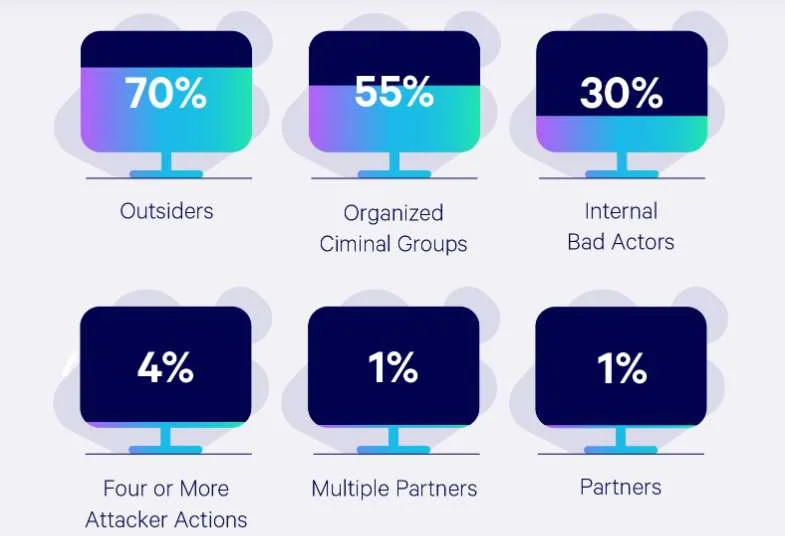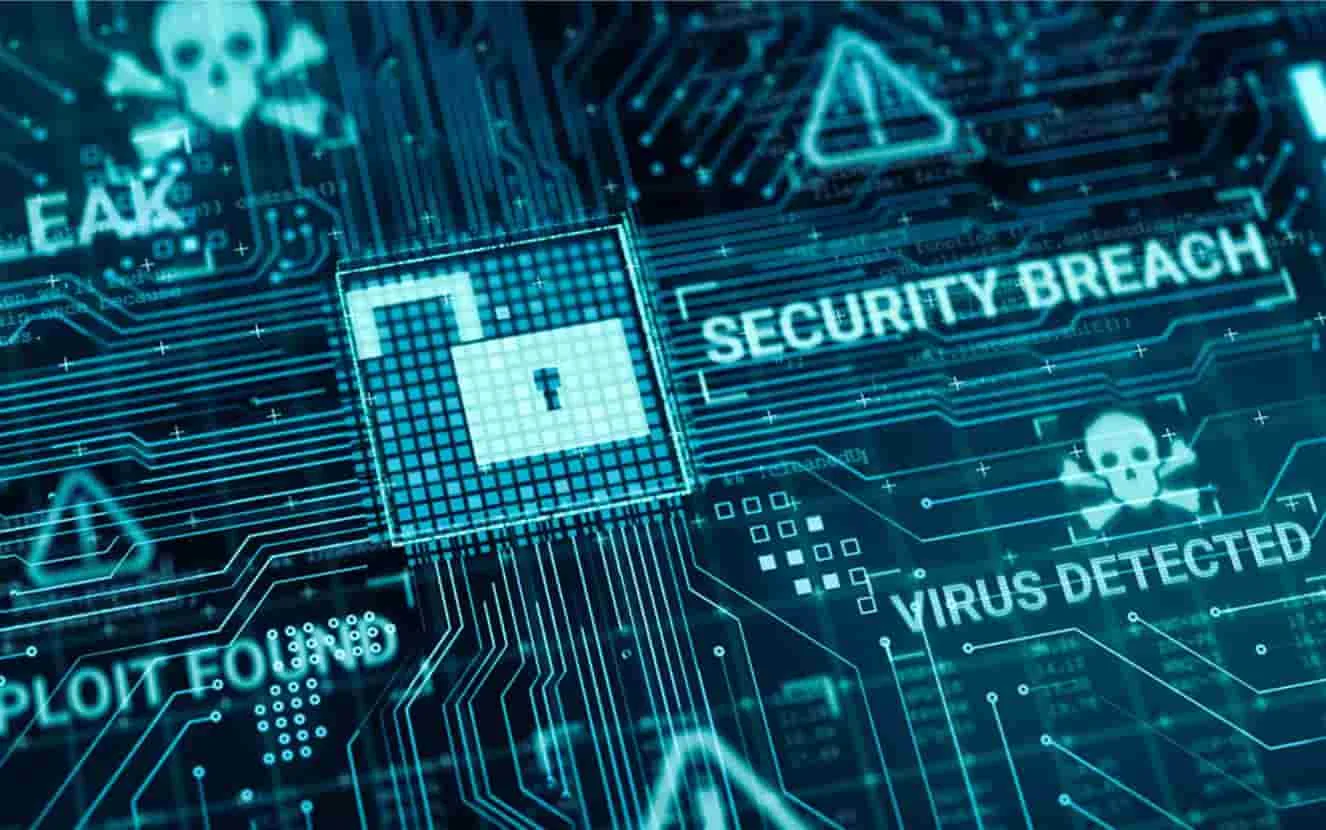Companies in every industry are at risk of being attacked by hackers, but some industries are more vulnerable than others.
Cybercrime has been ranked as the fifth most important risk in 2020, and this sector continues to flourish in 2024, as IoT attacks alone are expected to double by 2025.
This article will discuss the eight most susceptible industries to cyberattacks and what businesses can do to protect themselves.
1. Healthcare
Healthcare organisations are rich targets for cybercriminals because they hold a large amount of sensitive patient data. This data can be used to commit identity theft or fraud or sold on the black market. Hackers can access this data in many ways, including phishing emails, malware, and unsecured networks.
Healthcare organisations should invest in strong cyber security measures, including data encryption and user training to protect themselves. They should also have a plan in place to respond to a breach if one occurs.
2. Financial Services
Institutions like banks and investment firms are another prime target for cybercriminals. These organisations hold many financial data that can be used to commit fraud or theft.
The financial data include credit card numbers, bank account information, and social security numbers. Most financial institutions have robust cyber security measures in place, but there are still some vulnerabilities.
To protect themselves, businesses that offer financial services should ensure their networks are secure and that their employees are trained to spot and avoid phishing emails.
3. Retail
Retailers are also at risk for cyberattacks. Retail businesses hold a lot of customer data, including credit card numbers and contact information.
Most hackers use this information to commit fraud or identity theft. Identity theft is when someone uses your personal information to open new accounts, take out loans, or make purchases in your name.
If only retail businesses implemented two-factor authentication, which involves using a One-Time Password (OTP), the number of retail breaches would be significantly reduced. OTPs are transmitted to the shopper’s mobile phone and are required to complete an online purchase, ensuring that the person making the purchase is who they say they are.
5. Education
Educational institutions hold a lot of sensitive data, including student and faculty records, financial information, and research data. All this information can be very resourceful to cybercriminals.
Many high-profile breaches in the education sector have recently occurred, including incidents at famous institutions where attackers have stolen research data and student information.
The institutions should keep confidential information as safe as possible by educating their staff about not sharing passwords with unauthorised personnel and securing their networks with a firewall and intrusion detection system.
6. Energy and Utilities
Cyberattacks on energy and utility companies can have devastating consequences. These businesses provide critical services that everyone relies on, so if they were to be shut down by a cyberattack, it would cause significant disruption.
Energy and utility companies are attractive targets for cybercriminals because they often have outdated systems that are not well-protected.
All the systems should be updated regularly if possible, and staff should be trained in cyber security best practices, including not downloading email attachments from unknown senders and not clicking on links in emails from unfamiliar people.
7. Government
Government organizations are another common target for cybercriminals. These organizations hold a lot of sensitive data, including citizen records, financial information, and classified documents. Hackers can use this data to commit fraud, blackmail, or espionage.
Recently, there have been many high-profile cyberattacks on government institutions, including the U.S. Office of Personnel Management and the Democratic National Committee.
8. Manufacturing
Sabotage is a big concern for manufacturing companies. Cybercriminals could target these businesses to cause physical damage to their products or machines. This could lead to injuries, loss of life, and billions of dollars in damages.
In addition, manufacturing companies are often targeted by hackers who want to steal their intellectual property, such as product designs and blueprints.
Manufacturing companies can protect themselves from cyberattacks by using industrial control systems (ICS). ICS monitor and controls industrial processes, such as manufacturing, power generation, and oil and gas production. These systems are typically isolated from the internet to reduce the risk of cyberattacks.
Reducing the Risk of Cyber Attacks
Data security breaches are becoming increasingly common as a result of hackers mishandling your data. It’s the most responsible course of action after having adequate cyber insurance to prevent finaincal loss due to data security breaches.
Data breach laws vary by state, so it’s important to consider where your business is located. It’s likely that notifications, what’s covered, and penalties will differ depending on the incident and the state you are in.
Steps to reduce the risk of cyber attacks include:
Reduce Data Transfers
Transferring data between business and personal devices is often inevitable as a result of the increasing amount of employees who work remotely. Keeping sensitive data on personal devices significantly increases vulnerability to cyberattacks.
Download Carefully
Downloading files from unverified sources can expose your systems and devices to security risks. It’s important to only download files from sources and avoid unnecessary downloads to lower your device susceptibility from malware.
Improve Password Security
Password strength is the first line of defense against a variety of attacks. Using strings of symbols that don’t have a meaning, regular password changes and never writing them down or sharing them is a crucial step to protecting your sensitive data.
Update Device Software
Software providers work hard on continuously making their software more secure, and regularly installing the latest updates will make your devices less vulnerable to attacks.
Monitor for Data Leaks
Regularly monitoring your data and identifying existing leaks will help mitigate the potential fallout from long-term data leakage. Data breach monitoring tools actively monitor and alert you of suspicious activity.
Cybercrime for Small and Medium Businesses
Small to medium sized businesses are increasingly becoming the targets of more frequent, targeted, and complex cyberattacks.
According to Cybercrime Studies, 43% of cyberattacks are aimed at small businesses, but only 14% are prepared to defend themselves.
A cyber attack can not only disrupt normal operations, but it may also destroy important IT assets and infrastructure, making them irreparable without the budget or resources. Small businesses are having difficulty protecting themselves due to this issue.
Report Statistics – Small and medium Business (SMBs)
- Insufficient security measures: 45% say that their processes are ineffective at mitigating attacks.
- Frequency of attacks: 66% have experienced a cyber attack in the past 12 months.
- Background of attacks: 69% say that cyber attacks are becoming more targeted.
The consequences a cybersecurity incident cab impact your business weeks, if not months, later. Below are five areas where your business may suffer:
- Financial losses
- Loss of productivity
- Reputation damage
- Legal liability
- Business continuity problems
Who’s is behind data breaches?

Updated – List Of Australian Cyberattacks 2024
In a disconcerting beginning to the year, numerous notable Australian corporations and businesses succumbed to a succession of cyber assaults, leading to extensive data breaches.
- Quantum Radiology – Hacked Radiologist Downplays Incident
- Nissan Australia – A Cyber Incident Undergoing Current Investigation
- Hal Leonard Australia – Ransomware Attack Strikes Music Giant
- Binge, Dan Murphy’s, Guzman y Gomez
- Australian Labor Government – Breach Exposes Millions of Files
- The Iconic and Inspiring Vacations
- Court Services Australia – Victoria Courts Targeted
- Yakult Australia and Eagers Automotive
The Bottom Line –
Cyberattacks are a serious threat to businesses in all industries. However, some industries are more vulnerable than others. If the most vulnerable sectors take steps to improve their cyber security, they can reduce the risk of being targeted by hackers.
Native Tech News Report.







